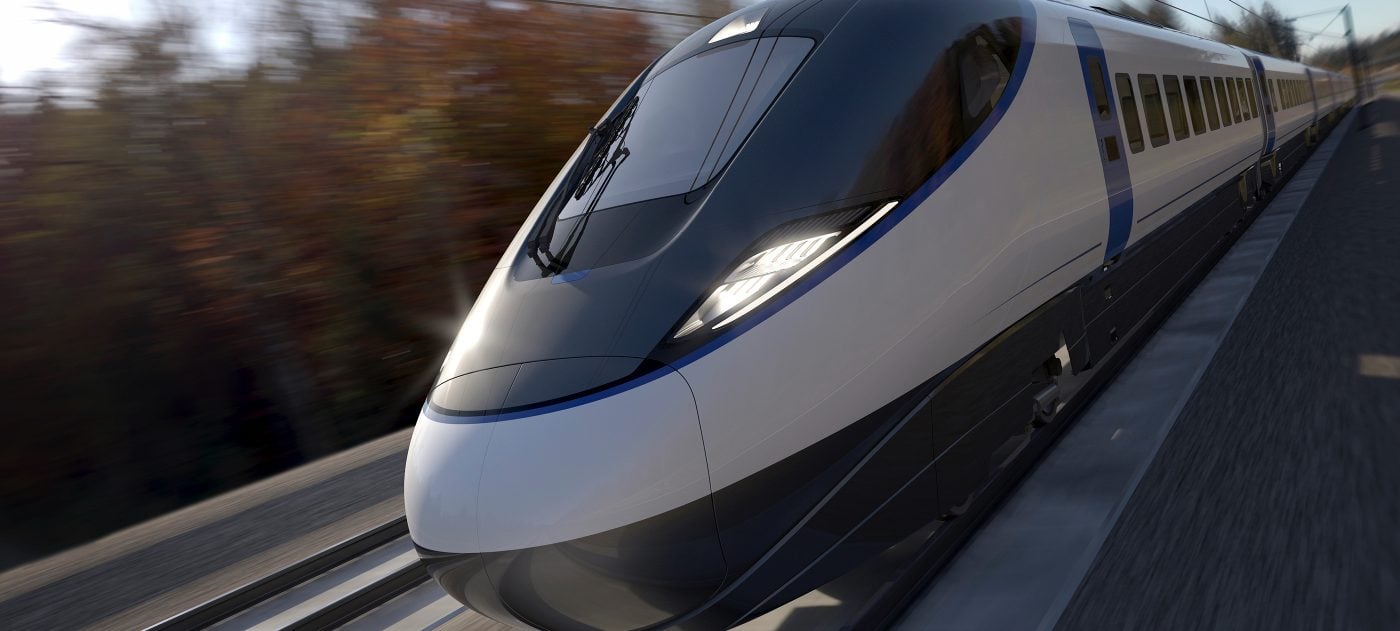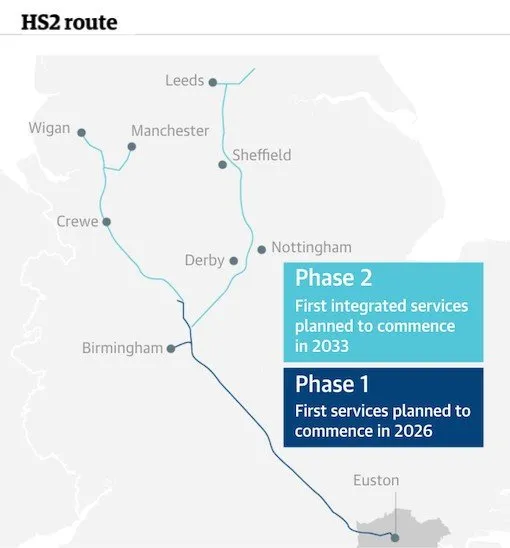A derailed dream: what happened to HS2?
23 April 2024 by James
High-speed rail has been gaining traction since the 1980s, with countries such as Germany, Spain and France investing heavily in new lines - with some capable of reaching 170mph. HS1 arrived in 2007 and was a huge success, so what the hell happened to HS2?

HS2 was supposed to form 330 miles of high-speed rail network, linking London and the West Midlands, stretching to Birmingham, eventually extending to Crewe, Manchester and Leeds.
It was first discussed in 2009 by the Labour government as a successor to HS1, and in January 2012 the Transport Secretary at the time (Justine Greening) confirmed it would go ahead.
The original plan was to run up to 18 trains per hour in each direction with trains reaching speeds of over 220mph, significantly reducing journey times between London and the North.
Advertisement
The routes were going to be in three phases:
- Phase 1: London Euston to Birmingham Curzon Street, with intermediate stations at Old Oak Common in the western suburbs and at Birmingham Airport
- Phase 2a: To extend the line from Fradley in the West Midlands to Crewe in Cheshire
- Phase 2b: Comprised of an eastern leg from the West Midlands to the East Midlands and a western leg from Crewe to Manchester

However, these plans soon spiraled out of control:
- In 2010, the HS2 budget is set at a reasonable £30bn
- A couple of years later, Rob Holden and other experts who led HS1, voice their concerns, saying it's being "engineering-led" rather than by needs.
- 5 years later, the projected cost is over £56bn, and alternatives to HS2 are suggested but are ignored.
- In 2017, HS2 gets the green light, despite warnings that it would go over-budget.
- One year later, the cost is estimated to be £88bn or more.
Advertisement
And as of now, we're looking at a significantly reduced route - just one third of the original design - for £45bn, over 50% greater than the original cost.
When it is finally built, passengers travelling between London and Birmingham can expect to save a mere 30 minutes on their journey.
That works out to be a cost of £1.5 billion per minute saved, which makes even the scandalous Covid PPE deals look like good value for money!
Not only that, in March 2012, Berkshire, Buckinghamshire and Oxfordshire Wildlife Trust submitted a complaint to the European Commission, stating that the government failed to carry out a strategic environmental assessment when deciding on the route of phase one, which was in breach of EU legislation.
There were also several requests for judicial review, each claiming that there was improper and insufficient consultation. One request claimed there had been no consideration for the impact on the London Underground or the Chilterns Area of Outstanding Beauty.
So, if there's one thing to take away from this article: by the time HS2 is somewhat operational, self-driving and even flying cars will have made it obsolete.
Comments
Please sign in or create an account to comment.
Latest articles
-
1⚠️ Global IT outage - Check before you travel ⚠️
-
2Introducing the Knowledge Hub
-
3Avanti's brand new Class 805s are here: any good or another hopeless Hitachi?
-
4Exclusive behind the scenes with an inspirational LNER train driver
-
5End of the road for London's Boris Buses as mayor reveals zero-emission plan
Advertisement
Advertisement